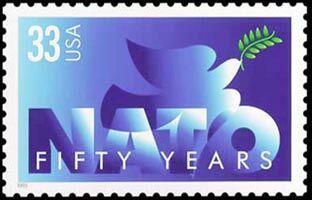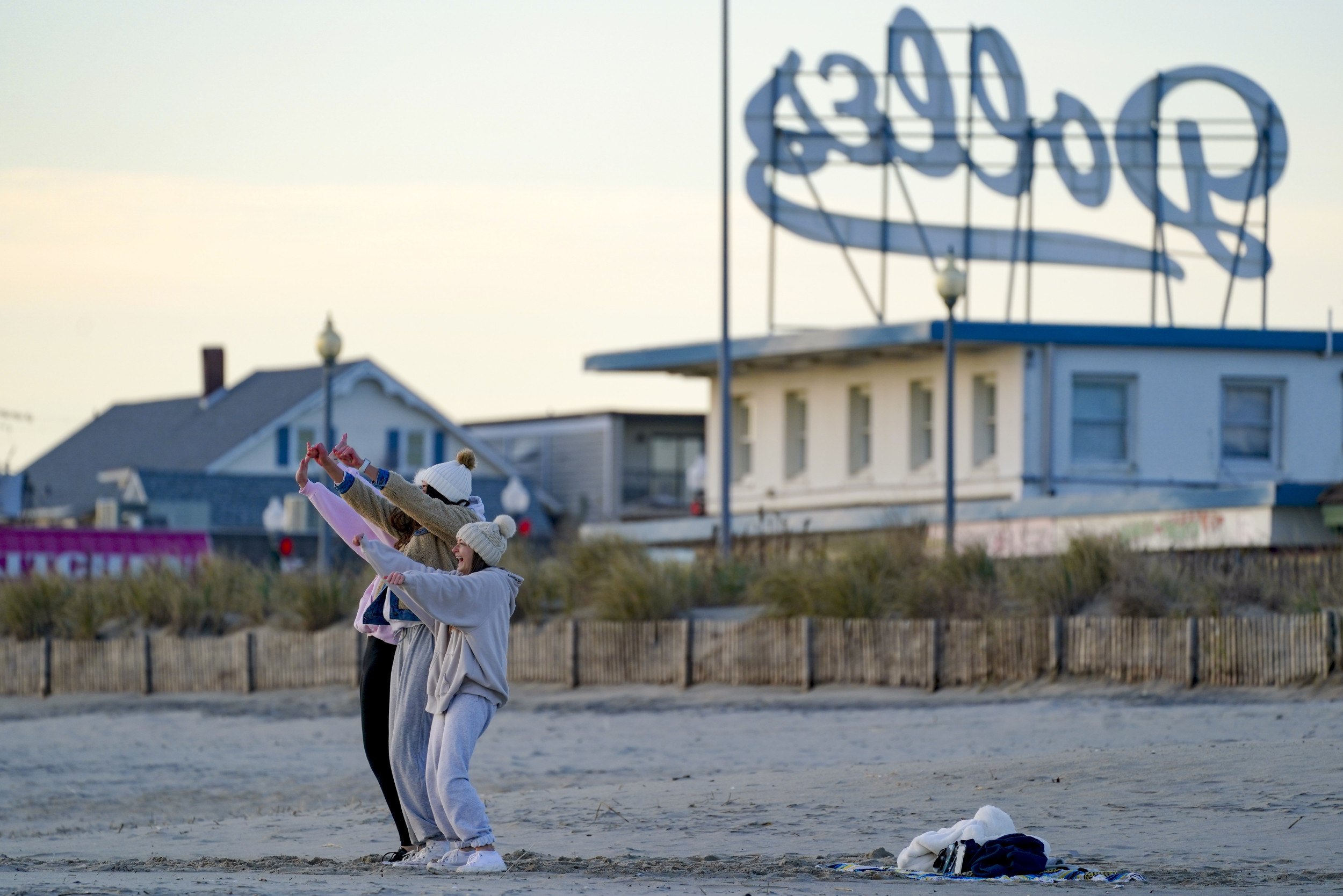
This article was first published on the Council on Foreign Relations site.
http://blogs.cfr.org/patrick/2016/07/06/brexit-pursued-by-a-bear-natos-enduring-relevance/?cid=otr-partner_site-Newsweek
The British public's momentous decision two weeks ago to quit the European Union (EU) continues to reverberate globally. But its geopolitical implications should not be exaggerated.
Brexit poses an institutional crisis for the EU. But it hardly indicates the impending "collapse of the liberal world order," as some pundits fret.
This weekend's Warsaw summit will remind the world—and Vladimir Putin—that NATO remains the real anchor of Western defense, and that the solidarity of the transatlantic alliance need not depend on the fortunes of the European project.
Americans have long associated the Atlantic alliance with European unity—and for good reason. It was the U.S. security guarantee—formalized in the North Atlantic Treaty (NAT) signed in Washington in 1949—that provided Western Europeans the confidence they needed to take the first, difficult postwar steps toward continental integration, beginning with Franco-German reconciliation.
Secretary of State Dean Acheson, who supported the emergence of NATO's integrated command structure, was also a vocal cheerleader for a "United States of Europe" (as was his Republican successor John Foster Dulles).
As a condition for Marshall Plan aid, for instance, the United States insisted that European recipients take steps toward unity. This pressure helped spur France's proposal for a European Coal and Steel Community—the forerunner of today's EU.
Looking back, it all seems remarkable. For the first time in history, a dominant power (the United States) promoted unity rather than division in an area under its influence. Under the U.S. nuclear umbrella, Western Europe enjoyed an unprecedented period of peace, prosperity and integration.
The West's triumph in the Cold War was thus a vindication for both NATO and European unity. In the wake of the Soviet Union's collapse, both the alliance and the EU expanded into the former Soviet space, to the very borders of Russia itself. Given this parallel history, it is understandable that observers would regard the EU's current crisis as a threat to NATO.
That would be a mistake. If anything, the EU's travails reinforce the alliance's centrality as the foundation of Western liberal order.
The Brexit calamity—like the eurozone and refugee crises before it—is not fundamentally about Western solidarity, security or even cooperation. It is about the degree to which Europe's market democracies are willing to pool sovereignty, including by accepting common regulatory standards and supranational oversight in spheres (like migration) that have traditionally been left to competent national authorities.
The debate over Brexit had ugly, xenophobic and nativist overtones, to be sure. But the referendum's outcome also reflected populist distrust of an EU perceived to lack democratic accountability and to be trapped in a vague no man's land between confederation and political union. Brexit, in other words, is a constitutional crisis for Europe.
But it is not a crisis for NATO, which remains as it always has been: an alliance of sovereign, democratic states. NATO forces report to a supreme commander, who is responsible for setting strategy and doctrine, as well as conducting joint operations. But it is sovereign governments that are represented on the North Atlantic Council, and they have ultimate authority over the deployment of their national contingents.
Nothing about Brexit, moreover, undermines the fundamental commitment contained in Article 5 of the NAT, which obliges each member state to take prompt measures to defend any other party in the event of an armed attack.
Indeed, Brexit—however lamentable for the EU—may ultimately strengthen NATO by slowing the development of stand-alone EU military capabilities. Over the past quarter century, the EU has taken fitful steps toward deepening its collective defense capacity, which London had long opposed.
With British obstruction removed, some now speculate that Brexit could pave the way for Germany and France to advance European military integration. In reality, however, such efforts are fraught with political and logistical challenges. In the meantime, Europe faces immediate challenges—not least from an assertive Russia—that demand an urgent response, and which a well-oiled NATO is already prepared to address.
Early in NATO's founding cycle, Lord Ismay famously defined its role as keeping "the Americans in, the Germans down and the Russians out." The end of the Cold War thus posed an identity crisis for the alliance. With Germany peacefully reunited and the Soviet Union gone, why should the United States (or any others, for that matter) stay in?
Having lost an enemy, NATO had to find new roles. The first was consolidating a Europe "whole and free." The second was going "out of area," including in Afghanistan. The third was confronting "new threats," from cyberwar to energy insecurity.
But it is Vladimir Putin who has brought NATO back to basics. Russia's seizure of Crimea, proxy intervention in eastern Ukraine and ongoing efforts to intimidate the Baltics have revived NATO's core purpose as a bulwark of Western collective defense.
Last month, the alliance held the largest military exercises in its post-Cold War history, involving some 31,000 troops from 24 nations. This weekend in Warsaw, its leaders will formally endorse a plan to deploy four multinational battalions in Poland and the three Baltic states.
The British decision to command one of these units (the others will be under U.S., Canadian and German command) sends a powerful sign that active NATO membership is compatible with being outside the EU—just as it was between 1949 and 1973 (the year Britain joined the European Economic Community).
NATO Secretary-General Jens Stoltenberg has reassured rattled allies that Brexit will not undercut Britain's long-term commitment to NATO. To be sure, talk is cheap, and U.K. Prime Minister David Cameron will soon depart the scene, leaving others to clean up the mess.
Although some "Leave" supporters have affirmed that Brexit does not mark Britain's "retreat into splendid isolation" but an opportunity to "find our voice in the world again," skeptics worry that the post-Brexit U.K. will be both poorer and inward-looking, unwilling to support the ambitious defense spending increases that Cameron proposed last year.
Will British citizens, confronting the potential economic blowback of Brexit, embrace the internationalist role that Boris Johnson touted as the future of an "independent" Britain? Others observers worry that Scotland will bolt the U.K., depriving once-Great Britain of its only suitable base for its nuclear-armed submarines.
These are real, practical problems. But they can be managed without calling into question either the credibility of the alliance or the British commitment to meet its NATO obligations. Nor should the EU's current difficulties blind us to the tremendous structural weaknesses—demographic, economic, technological and institutional—confronting Putin's Russia, which for all the Kremlin's bluster remains a declining rather than emerging power.
In Warsaw, President Obama, Prime Minister Cameron and their fellow leaders should drive home the basic reality: NATO faces Russia from a position of strength. The Russian bear may have pursued Brexit to the extent that it weakened an already limping Europe, but NATO is another animal altogether.
Stewart M. Patrick is senior fellow and director, program on international institutions and global governance at the Council on Foreign Relations.
Uncommon Knowledge
Newsweek is committed to challenging conventional wisdom and finding connections in the search for common ground.
Newsweek is committed to challenging conventional wisdom and finding connections in the search for common ground.
About the writer
To read how Newsweek uses AI as a newsroom tool, Click here.








